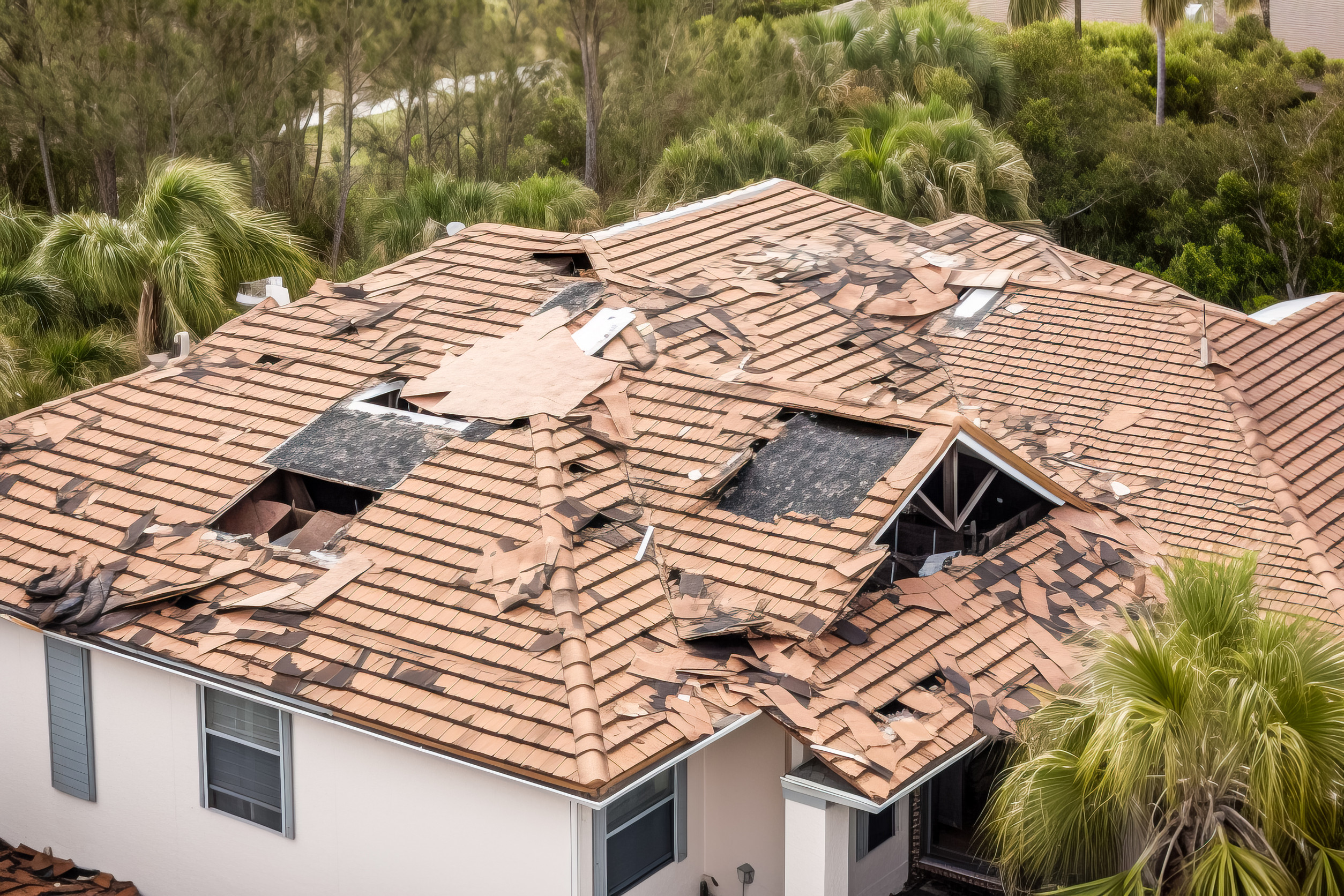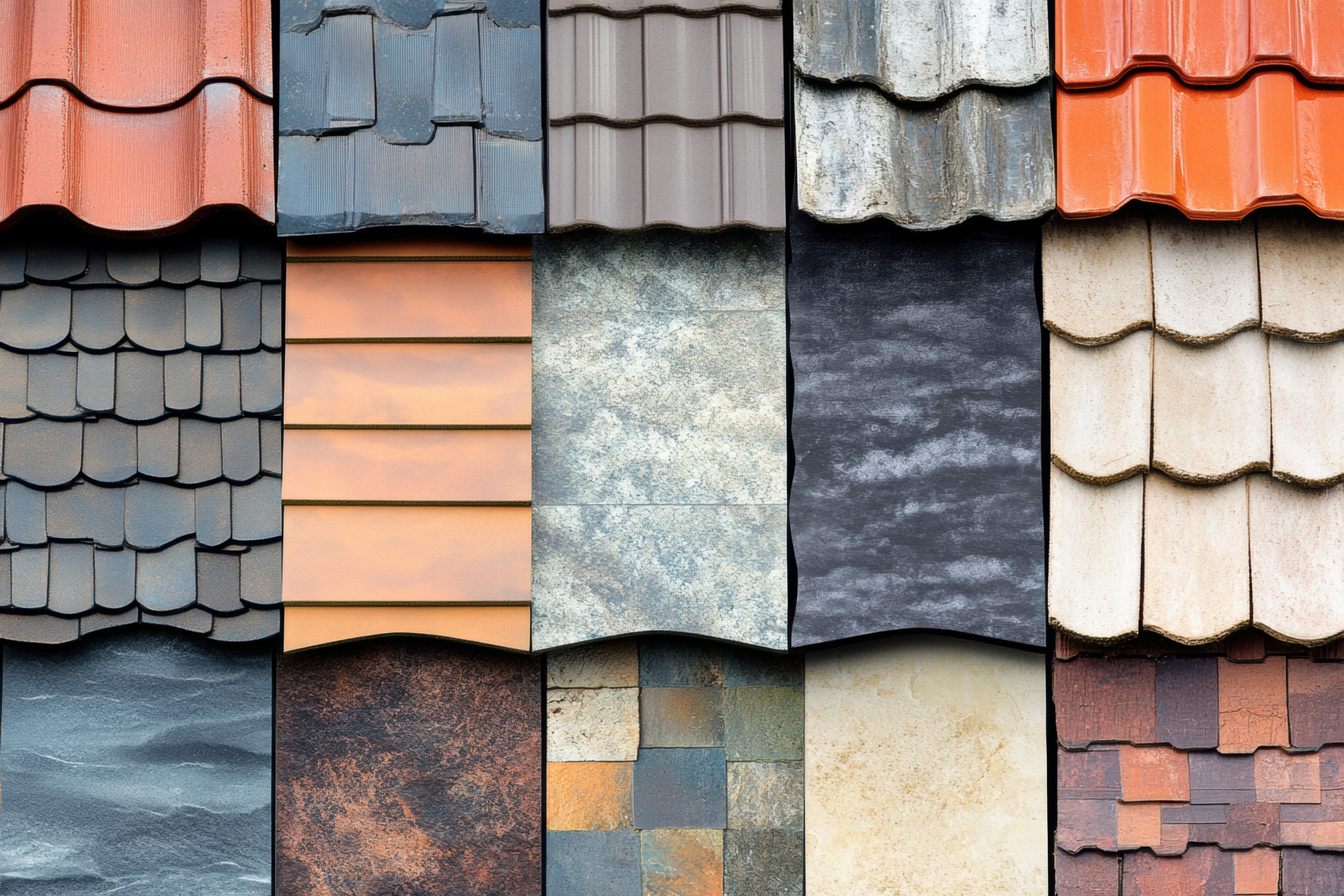Do Metal Roofs Attract Lightning?
Metal roofs are becoming increasingly popular among homeowners and businesses for their long lifespan, energy efficiency, and low maintenance. However, one of the most common questions people ask before installation is, “Do metal roofs attract lightning?”
It’s a reasonable concern. Since metal conducts electricity, many assume a metal roof increases the risk of a lightning strike. The truth, however, is more reassuring. In this guide, we’ll explore how lightning actually behaves, whether metal roofs attract it, and why they may be one of the safest roofing options available.
If you’re considering upgrading to a metal roof and want trusted advice, reach out to RC Roofing LLC, your reliable roofing experts in East Tennessee.
Understanding How Lightning Works
Before answering whether metal roofs attract lightning, it’s helpful to understand what causes a lightning strike in the first place.
Lightning is a massive electrical discharge that occurs between charged regions in the atmosphere and the ground. When the negative charges in a storm cloud build up, they seek the path of least resistance to neutralize themselves. This path could be a tree, a building, a mountain, or even open ground.
Key facts about lightning behavior:
- Lightning does not seek out metal objects specifically.
- It looks for the tallest or most conductive point closest to the storm’s electric field.
- Geography, height, and surroundings determine where lightning strikes, not the material of your roof.
So while metal is conductive, it doesn’t attract lightning any more than other common roofing materials like asphalt or tile.
The Myth: Metal Roofs Attract Lightning
The misconception that metal roofs attract lightning likely comes from the fact that metal conducts electricity. People assume that because metal can carry an electrical current, it somehow “pulls in” lightning.
In reality, lightning strikes are determined by:
- Elevation: Taller structures or trees are more likely to be struck.
- Isolation: Buildings standing alone in open areas are more vulnerable.
- Shape: Sharp or pointed structures can attract electrical discharge.
The type of roofing material has virtually no influence on whether lightning strikes. According to studies by the Metal Construction Association and the National Fire Protection Association (NFPA), metal roofs are no more likely to be struck by lightning than roofs made from other materials.
For expert insights on safe and durable roofing options, visit RC Roofing LLC’s residential roofing services.
The Science: Conductivity vs. Attraction
To put it simply, conductivity does not equal attraction. While metal conducts electricity efficiently, it does not emit an electrical charge that attracts lightning.
When lightning strikes a metal roof, the energy is safely dispersed across the surface rather than concentrated at one point. This makes metal roofing actually safer than many non-metal materials in the rare event of a direct strike.
Unlike wood or asphalt shingles, which can catch fire, metal roofs are non-combustible and help dissipate electrical energy harmlessly into the ground through proper grounding and bonding systems.
Why Metal Roofs Are Safer During Storms
If lightning does strike your home, a metal roof can actually protect you better than other materials. Here’s why:
1. Fire Resistance
Metal roofing materials such as steel, aluminum, and copper are non-combustible. This means they do not ignite or burn when exposed to extreme heat or electrical discharge. In contrast, asphalt shingles and wooden roofs can catch fire from a lightning strike.
2. Energy Dispersion
Because metal is conductive, it helps distribute electrical energy evenly across its surface, reducing the risk of localized damage. When properly grounded, the current safely passes into the earth, minimizing the impact on the home.
3. Durability and Structural Integrity
Metal roofs are designed to withstand extreme weather, including high winds, hail, and heavy rain. Their interlocking panels and secure fastenings make them less likely to sustain damage from debris or secondary storm effects.
For more information about durable roofing options designed for East Tennessee weather, check out RC Roofing LLC’s commercial roofing solutions.
Grounding: The Key to Lightning Safety
While metal roofs do not attract lightning, proper grounding is essential for safety. Grounding ensures that if lightning does strike, the electrical charge has a safe, direct path into the ground.
What grounding involves:
- Installing grounding rods connected to the building’s structure
- Using copper or aluminum conductors to redirect energy
- Bonding the roof and other metal components (gutters, vents, etc.) to the same system
Professional roofing contractors, like RC Roofing LLC, work with certified electricians when necessary to ensure your roofing system complies with the National Electrical Code (NEC) and local regulations.
Comparing Roofing Materials and Lightning Safety
As the table shows, metal roofs provide superior protection during storms. Even though they conduct electricity, they do not ignite or sustain damage easily. This makes them one of the most storm-resilient roofing systems available today.
Real-World Statistics and Research
According to the Metal Construction Association, metal roofing systems account for less than 5 percent of structures reported as damaged by lightning annually, despite being installed on millions of buildings across the country.
Additionally, the National Weather Service confirms that lightning is more influenced by structure height and location than material composition. This means a tall tree beside your house is far more likely to be struck than the roof itself—regardless of whether it’s metal, asphalt, or tile.
The Role of Lightning Rods
Lightning rods are designed to attract and safely redirect electrical charges into the ground. If your home is in an area prone to thunderstorms, installing a lightning protection system is a smart precaution.
A metal roof complements this system perfectly. Because it is conductive and non-combustible, it works seamlessly with lightning rods to enhance safety. The lightning rod draws the strike, while the roof safely disperses any residual energy.
If you’re unsure whether your home needs additional protection, contact RC Roofing LLC to schedule a professional assessment. Their team can help you determine whether grounding or lightning rods are appropriate for your property.
Common Misconceptions About Metal Roofs and Lightning
Myth 1: “Metal roofs increase my home’s chance of being struck.”
Fact: Lightning is attracted to height and isolation, not metal. Metal roofs are no more likely to be struck than other materials.
Myth 2: “If lightning hits a metal roof, it will destroy it.”
Fact: Metal roofs distribute electricity safely across their surface. With grounding, they are less likely to sustain damage than asphalt or wood.
Myth 3: “Metal roofs cause fires when struck.”
Fact: Because metal is non-combustible, it actually helps prevent fires caused by lightning or electrical discharge.
For more insights into roofing myths and maintenance advice, visit the RC Roofing LLC blog.
Metal Roofs: Benefits Beyond Lightning Protection
Metal roofs offer many advantages beyond safety from storms. Homeowners and business owners alike choose metal for its combination of style, strength, and efficiency.
1. Longevity
Metal roofs can last 40 to 70 years, far longer than asphalt shingles, which typically last 20 to 30 years. This makes them a cost-effective choice over time.
2. Energy Efficiency
Reflective coatings on metal roofing reduce heat absorption, keeping your home cooler in summer and lowering energy bills.
3. Sustainability
Metal roofs are often made from recycled materials and can be recycled again at the end of their lifespan, reducing environmental impact.
4. Aesthetic Appeal
Available in a wide variety of colors and profiles, metal roofing can enhance the curb appeal of any home or business.
Explore design inspiration in RC Roofing’s photo gallery.
Maintenance Tips for Metal Roof Owners
While metal roofs are low maintenance, regular inspections keep them performing their best.
Maintenance checklist:
- Inspect for loose fasteners or flashing after major storms.
- Keep gutters and valleys free of debris.
- Wash off dirt and mildew annually.
- Check for scratches or worn paint on coated metal panels.
Professional inspections from RC Roofing LLC can help detect minor issues before they turn into costly problems.
FAQs About Metal Roofs and Lightning
Q: Can a metal roof make my home more dangerous during storms?
A: No. Metal roofs actually make your home safer because they are fire-resistant and help dissipate lightning energy efficiently.
Q: Do I need a lightning rod if I have a metal roof?
A: Not necessarily. However, if your home is in an area prone to lightning strikes or stands higher than surrounding structures, a lightning protection system can add an extra layer of safety.
Q: Will a metal roof interfere with my Wi-Fi or cell signal?
A: No. Metal roofs do not block wireless signals significantly. Most modern homes have routers and devices designed to handle typical signal interference.
Q: How does a metal roof compare to asphalt shingles in storms?
A: Metal roofs are more durable, fire-resistant, and energy-efficient. They withstand hail, wind, and lightning better than shingles.
Conclusion
So, do metal roofs attract lightning? The answer is no. Metal roofs do not increase your risk of a lightning strike. In fact, they can make your home safer during storms due to their non-combustible nature and ability to disperse electrical energy.
If you want a roofing system that combines safety, strength, and style, metal is one of the best choices you can make. With proper installation and grounding, you can enjoy decades of reliable protection and peace of mind.
For professional metal roof installation or inspection in East Tennessee, contact RC Roofing LLC. Our experienced team provides expert residential roofing and commercial roofing services tailored to your property’s needs.
Learn more about our commitment to quality on the About Us page, and explore the blog for additional roofing tips and insights.







